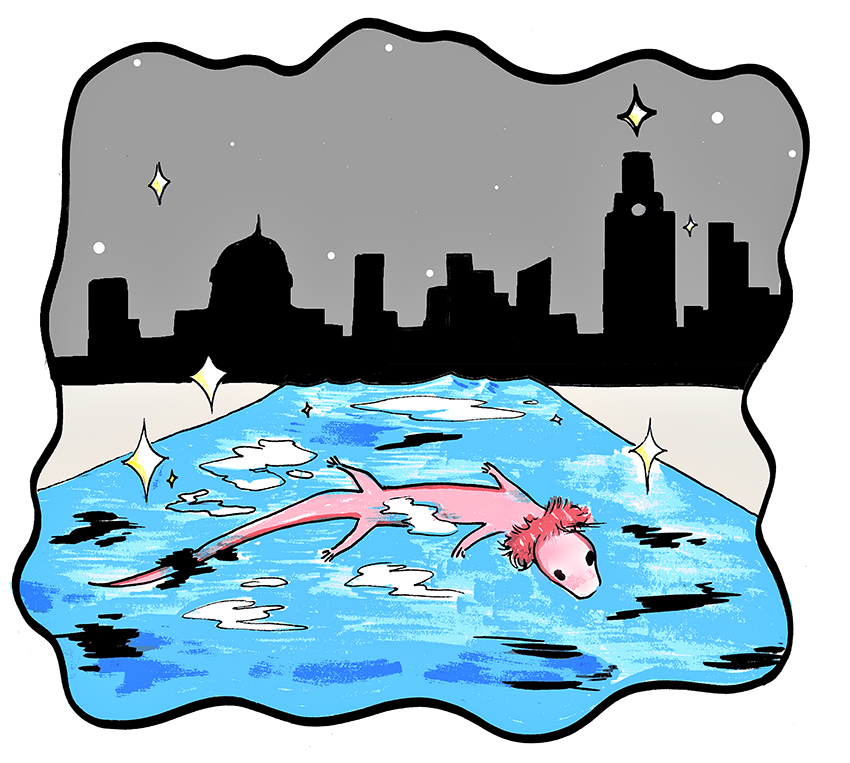Think globally and act locally.
According to integrative biology professor David Hillis, Austinites should use this mindset when approaching Earth’s conservation and protection.
This Friday at 7 p.m., Hillis will give a talk about the Barton Springs salamander, an endangered species that only resides within the Barton Springs system in Austin. This Earth Day talk, part of the “Hot Science – Cool Talks” series, will discuss the history of the salamander and how the city of Austin acted to protect it.
“The point of my talk really is that the things that are good for the salamander are also good for humans,” Hillis said. “In order for Austin to develop as a city, you have to have adequate water supply and quality of life, and the Barton Springs salamander has basically been a tool that Austin has used to protect those things.”
Hillis said the Barton Springs salamander is endangered primarily because it lives in a large urban spring, which is affected by development in Austin. Hillis plans to discuss what has happened since the discovery of the salamander in the early 1990s, focusing on the politics of conservation here in Austin.
Bill Bunch, executive director of Save Our Springs, a local Austin nonprofit aimed at protecting Barton Springs, said the work necessary to preserve the Barton Springs salamander isn’t over.
“To me, the salamander is a stark, powerful example of the fact that you don’t have to go to the rainforest of the Amazon or to Antarctica to see the clash between preserving and sustaining Earth’s ecosystems,” Bunch said.
Bunch also said if citizens of Austin can’t preserve the salamander, which is within such close proximity, then there is little hope that people can protect the rest of the planet.
According to Hillis, the loss of diversity on a small scale can lead to large scale problems in entire ecosystems. He said he believes there is a lot of misinformation about endangered species and plans to discuss citizen involvement in local conservation efforts.
“You often hear people say they think people are more important than salamanders,” Hillis said. “But, in fact, protecting endangered species is a way of protecting resources that are critical for humans, as well as other species.”
Hillis said he cares about the Barton Springs salamander because he has been involved with it since its discovery, but he thinks others should care about it as well.
“Personally, I care about salamanders because I care about salamanders,” Hillis said. “Larger than that, I think people should care about the salamander because it is an indication of having clean and abundant water, something that is critical not only for the Barton Springs salamander, but also an entire ecosystem that is critical for our own survival.”
Hillis planned for this talk to be held on Earth Day partially because protecting this one endangered salamander relates to a larger Earth-scale focus on conservation, he said.
“It is very difficult to take on projects that affect all of the Earth simultaneously,” Hillis said. “Protecting the Earth is going to require lots of local efforts, and this is an example of those local efforts.”
Hot Science – Cool Talks: How a Salamander Saved a City with Dr. David Hollis
- When: April 22, 7 p.m.
- Where: WEL 2.224
- A community science fair with demonstrations and live Barton Springs salamanders will begin at 5:45pm.















